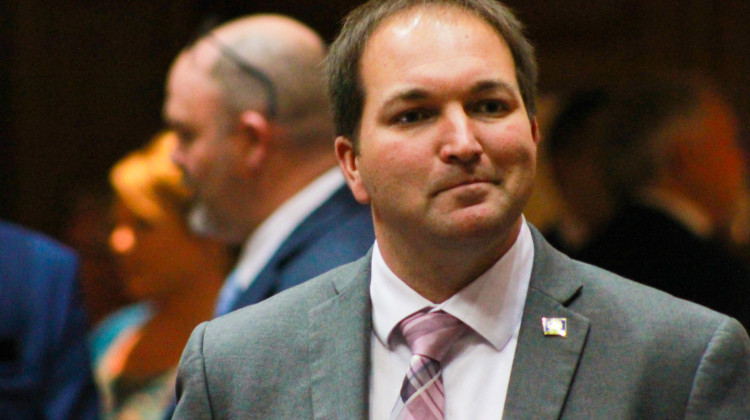Indianapolis’ largest school district cut about $211 million Tuesday from its request for extra funding, in a bid to win public support for the proposal.
That lower price tag comes with tradeoffs, district officials said. Even if voters approve the new plan, the district would dip into its cash reserves, put off building maintenance, and ditch expanded transportation plans, such as additional busing for students who move partway through the school year.
The new request also reduces how much the district would raise to pay for services for students with disabilities, though it was initially unclear by how much and how that could affect students.
But district officials said they still expected to be able to give raises to teachers if the referendums pass.
The scaled-back request would raise about $725 million over eight years, significantly less than the initial proposal of nearly $1 billion.
The board voted 6-0 in favor of reducing the amount of money the district is seeking, backing off the number members approved two months ago.
Board member Kelly Bentley said many school districts around the state have asked taxpayers for more money.
“We all own property in IPS. None of us want to see our taxes go up,” she said. But, she added, “I am confident that it’s money that’s going to be well spent, and it’s money that is necessary.”
Instead of pulling back spending on teachers and school staff, the district is making the new plan work by adjusting revenue expectations, said Chief Financial Manager Weston Young. The proposal is built on the assumption that state revenue will increase 1 percent each year, and the district will no longer hold as much money in reserves, he said.
“We are still committed to our students through our compensation for teachers and the wraparound services that serve those kids,” Young said.
Reducing the request could help build enthusiasm for the tax increase, which has not gotten much vocal community support. Instead, the referendums have been met with some concern over the size of the ask. But even though they have pared down their plan, district leaders will still need to persuade voters in May to raise their own taxes.
Superintendent Lewis Ferebee said the new plan is a balancing act between what taxpayers can bear and the cost of providing the level of service that families need. Ultimately, he said, the tax increase would pay dividends by helping the district prepare students for college and careers.
“This is one of those situations where you pay now or you pay later,” he said.
The move cut the potential tax increase for homeowners in IPS to $0.58 per $100 of assessed value, down from the initial proposal of $0.73. For taxpayers with houses at the district’s median value — $123,500 — the new plan would increase property taxes by $17.70 per month for operating expenses and $5.54 per month for building improvements, according to the district.
The referendum the board reduced would pay for operating expenses, such as teacher salaries, and under the new request, it would raise about $66 million per year for eight years. That’s down from the initial request of about $92 million per year.
Under the new plan, about $49 million of the money raised each year would go to staff pay, while the remaining $17 million would help pay for services and supplies, regular maintenance, and transportation.
A second measure, which was not changed, would pay for about $200 million in improvements to buildings, primarily safety updates such as new lighting and door security. Both measures are expected to go before voters in May.
Chalkbeat is a nonprofit news site covering educational change in public schools.
 DONATE
DONATE










 Support WFYI. We can't do it without you.
Support WFYI. We can't do it without you.